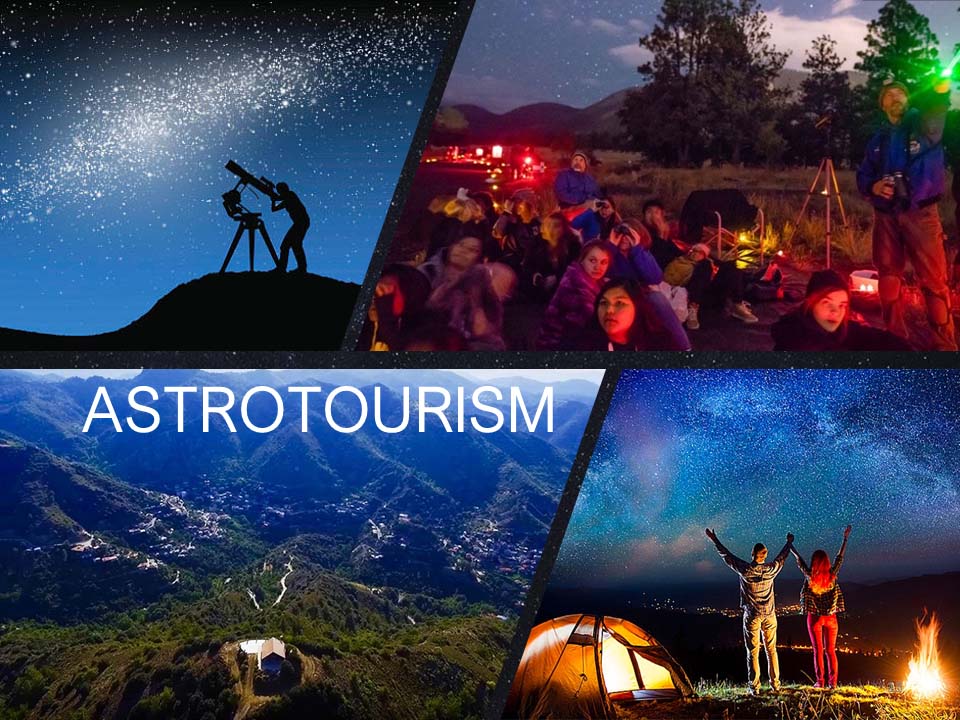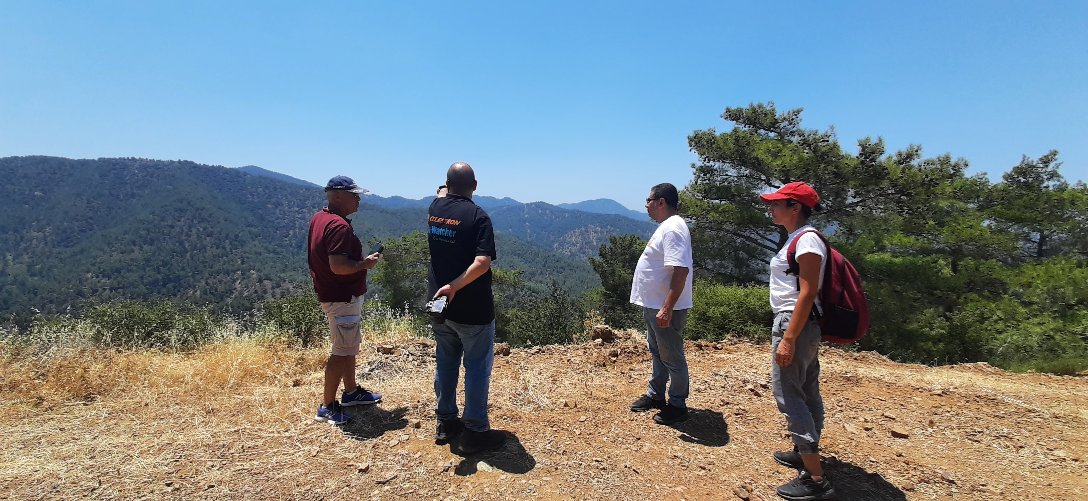By Annette Chrysostomou
Who has not marvelled at the stars in the sky? Those who have seen them on a clear night will certainly want to see more, and those who haven’t are in for a great treat. Astro-tourism is the new travel trend, whereby tourists can hike by day and stargaze by night. The experience is at its best in the great outdoors where the light pollution of our towns and cities doesn’t obscure the stars.
A project funded by the European Regional Development Fund and the Cyprus government through the Research and Innovation Foundation hopes to promote this new sustainable tourism sector in Cyprus.
Though only in its first year, the research carried out by Akti project and research centre and six other partners already shows promising results.
Akti project manager Christina Baldwin believes astro-tourism has a future in Cyprus, a country not yet high on the list of international astro-tourism destinations.
“We have measured light pollution in different places and Cyprus compares favourably with other countries,” she explained. “We have one of the clearest night skies due to the lack of clouds as well as being an island with attractions such as the mountains and the sea to which astro-tourism can be a welcome addition.”
Remote locations with little human development are particularly suited for stargazing, so does Cyprus with its rapid development still qualify?
According to Akti, it does, though it is high time to raise awareness about the dangers of light pollution.
“There is a risk the light levels may increase quickly in a small place like Cyprus,” Baldwin warns. “Maintaining the levels is definitely a concern.”
Akti has issued a press release on the subject for this reason. “The development of artificial lighting at night (Alan) has made human lives easier. However, Alan results in light pollution that can have negative effects on both humans and wildlife,” the announcement says.
Exposure to artificial lighting suppresses melatonin which Akti says has been linked to cancer. Artificial light also affects what are known as ‘clock genes’ whose role it is to control our internal process that regulates our wake-sleep cycle. It also results in increased energy consumption.
Wildlife evolved to tailor their activity to natural changes in light. A significant proportion of wildlife species are nocturnal; therefore, the artificial light has detrimental effects on them.
The effect on turtle hatchlings has been well documented in Cyprus, with young turtles who rely on moonlight to navigate to the ocean getting confused and moving towards built-up areas instead of the sea. Bats, insects, migratory birds, frogs and plants are other victims of light pollution.
The increased light affects the entire ecosystem and has an impact on the biodiversity of species.
“The success of astro-tourism relies on dark skies, hence this [the promotion and implementation of a new sustainable tourism sector] would encourage the reduction in Alan which would have positive effects on both the human population and biodiversity of Cyprus,” Akti says.
Last but not least, it is a welcome addition to activities in times of the coronavirus. “We developed it around the start of the lockdowns, though not because of it,” Baldwin said, “but it is a good thing, with people being outdoors.”
“Stargazing may put our lives in perspectives during lockdowns,” is one of many comments by fans of astrotourism posted online which may prompt even people not that keen on saving the environment willing to get involved.
The project partners have already approached stakeholders such as government departments and companies, with the aim to get authorities to adopt broader measures, such as the installation of shielded lamp posts and street lights which shine directly on to roads instead of illuminating whole areas, including the sky.
During the 36 months of the duration of the project, until 2023, much is going to be accomplished, if the organisers have their way. The plan is to create astro-parks, set up astro-villages, offer astro-tours, develop a relevant programme and fill it with events.
The project consortium is composed by seven partners with different expertise in relation to the project. Along with Akti, the project’s consortium is consisted by Top Kinisis (coordinator), the Research Centre on Interactive Media, Smart Systems, and Emerging Technologies (RISE), the University of Nicosia Research Foundation, the Enrico Fermi Institute at the University of Chicago, Adelve and 1010 Asteroskopeion.
For more info see https://www.akti.org.cy/portfolio/astrotourism/







Click here to change your cookie preferences